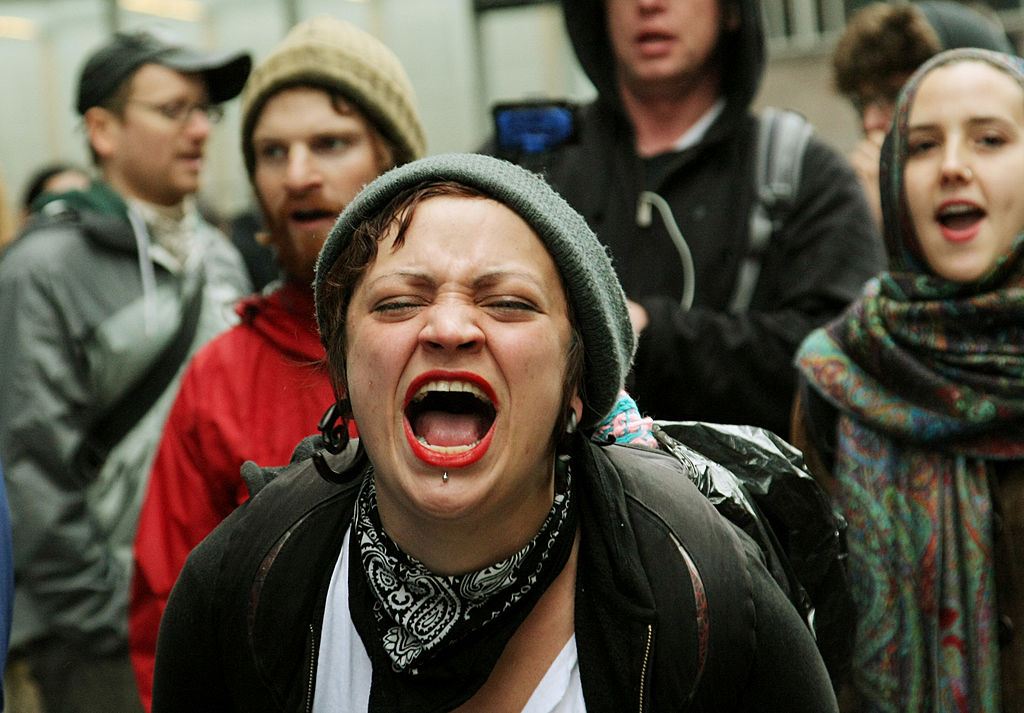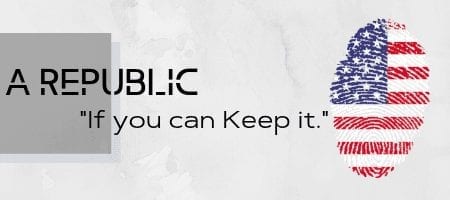One Fifth of Students Support Use of Violence to Silence
More college students are growing comfortable with the idea of violently suppressing speech they don’t agree with.
By: Pennel Bird | October 15, 2020 | 425 Words

(Getty Images)
A poll by the Foundation for Individual Rights in Education, Real Clear Education, and College Pulse asked about 20,000 students at 55 campuses across America about their current attitudes on the First Amendment, censorship, tolerance, and self-expression.
Violent Suppression Is Becoming Fashionable
The survey asked students about what they think they should do about public speakers with controversial or unpleasant views. Can you rip down their posters? Can you block them from speaking at all, or shout them down if they do? What about keeping audience members from being able to attend? Finally, is it ever okay to use violence to stop an event?

(Photo by Monika Graff/Getty Images)
Almost 20% of the students polled felt that such actions – including the use of violence – were justified. Just 82% of students felt that violence was “never justified.” So a good sized group of students is comfortable with violence against people with viewpoints they find unacceptable. The attitude is quickly becoming more common. Freedom of speech has been a core value of this country since its founding, but that seems to be changing.
This information comes after violent protests caused $100,000 in damage at the University of California, Berkeley. In 2017, right-wing provocateur Milo Yiannopoulos delivered a lecture that the progressive student body didn’t like – so those students responded with violence and destruction. That same year, Berkeley blocked political commentator Ann Coulter from speaking, and Ben Shapiro had to reschedule his appearance there based on violent protests against his speech.
Pressure to Self-Censor

The poll also showed that self-censorship is growing on campuses. While it’s felt by students of all political opinions, college conservatives suffer it the most. 72% of conservatives reported self-censorship in response to dominant attitudes on campus, while 55% of liberals felt the same. At 71%, DePauw University had the highest number of students reporting self-censorship, with 94% of campus conservatives at DePauw admitting to hiding their political opinions.
The poll demonstrated that more than the one-third of students who answered from Ivy league schools felt it was “sometimes” or “always” acceptable to shout down a speaker with whom they disagreed versus 27% at non-Ivy League schools.
Of the 55 schools polled, the institutions with the highest overall scores for the positive perceptions of freedom of speech were Kansas State University, the University of Chicago, Arizona State University, Texas A&M University, and the University of California (Los Angeles.) And the schools for which the inverse was true included Syracuse University, Dartmouth University, Louisiana State University, the University of Texas at Austin, and DePauw University.
















